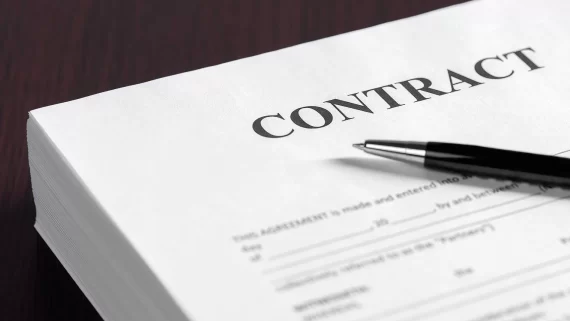In recent years, many foreign investors have become interested in doing business in Turkey due to the favourable economic conditions. Having your own business in Turkey is great. Building one from scratch? Really hard. Which is why some entrepreneurs opt to buy an existing business outright. There are other reasons to buy a business too, like acquiring an up-and-coming competitor, or just building your investment portfolio. Whatever your reason, the process of buying a business follows the same pattern. From finding and evaluating the right business, to closing the transaction, we’ll walk you through the whole process so you know what’s coming.
Buying an Existing Business in Turkey
Buying an existing business in Turkey may be quicker and easier than starting from scratch. Buying a company that’s already established offers advantages such as an established infrastructure and customer base, reduced risks, and immediate cash flow. However, there are legal considerations that need to be addressed. Thorough due diligence is crucial to assess the business’s financial stability and legal compliance. Familiarity with the regulatory environment is essential, including company law, labor law, tax law, and sector-specific regulations. Buyers must choose between a share purchase or asset purchase structure, each with its own implications. Drafting a comprehensive purchase agreement is important to protect the interests of both parties. Transferability of licenses, permits, and contracts should be assessed, and compliance with labor laws is vital when inheriting employees. Regular updates on legal changes are necessary, and consulting with legal professionals specialized in Turkish business law is recommended. By navigating the legal aspects diligently, buyers can ensure a successful acquisition and long-term success in the Turkish market.
Advantages and disadvantages of buying a business
Buying a business can be a good way to skip some of the startup costs and growing pains of starting a business from scratch, like launching a product or service or building a customer base. However, buying an existing business comes with its own risks, and the process to close the deal is complicated.
Advantages
- Some of the groundwork to get the business up and running will have been done
- It may be easier to obtain finance as the business will have a proven track record
- A market for the product or service will have already been demonstrated
- There may be established customers, a reliable income and a reputation to capitalise and build on. There will be a useful network of contacts
- A business plan and marketing method should already be in place
- Existing employees should have experience you can draw on
- Many of the problems will have been discovered and solved alread
Disadvantages
- You often need to invest a large amount up front, and will also have to budget for professional fees for lawyers, surveyors, accountants etc
- You will probably also need several months’ worth of working capital to assist with cashflow
- For a neglected business you may need to invest more on top of the purchase price to give it the best chance of success
- You may need to honour or renegotiate any outstanding contracts the previous owner leaves
- You also need to consider why the current owner is selling up. Think about how this might impact the business and your taking it over
- Current staff may not be happy with a new boss, or the business might have been run badly and staff morale may be low
Key legal considerations and steps to ensure a smooth and legally compliant acquisition
Due Diligence
Once an offer has been made and accepted a period of time is allowed for you to access the business’ books and records. This is known as due diligence.
It should give you a realistic picture of how the business is performing now, and how it is likely to perform in the future. It should also highlight any issues or problems which might need warranting or guaranteeing.
There are traditionally three types of due diligence. You might need different advisors for each:
- legal due diligence – as part of a sales and purchase contract, the lawyers can check that the business has legal title to sell, ownership of all the assets and that regulatory and litigation issues are fully addressed
- financial due diligence – checking the numbers and making sure there are no black holes or hidden financial issues
- commercial due diligence – finding out the business’ place in the marketplace, checking competitors and the regulatory environment
Don’t start due diligence until you have agreed a price and terms with the seller. They may agree to take the business off the market during your investigation. This is known as an exclusivity period and the seller will often ask for a down payment to secure it.
The investigation period is negotiable, but most businesses need at least three to four weeks.
Due diligence should include reviewing items such as:
- ongoing, pending or threatened litigation
- past lawsuits that may have affected the business
- employment contracts
- leases: Will the landlord agree to the transfer of the lease into buyer name? Will buyer have to negotiate a new lease?
- customer and supplier agreements and warranties: Are there any outstanding agreements between the seller and suppliers? What refunds and warranties still exist for the business?
- laws and regulations affecting the company
- licences and permits: Does the business have all the correct licences and permits required to run the business? Are they up-to-date?
- Assets and intellectual property issues: What assets does the business have? Does it have any real estate or intellectual property?
- corporate documents (e.g., certificates of incorporation, company bylaws, shareholder agreements)
- Status of plant, equipment and fixtures: What kind of equipment and machinery does the business own? Are they in good working order and licenced?
- Inventory: Is the inventory on-hand being included in the purchase? How is the inventory managed, stored and distributed currently? What is the current state of the inventory?
- Liabilities: Does the business have any outstanding debts? Are there debts owing on assets that are registered on the company name?
The Foundation of a Successful Acquisition
Before proceeding with the purchase, conducting thorough due diligence is paramount. This involves a comprehensive review of the target company’s legal, financial, and operational aspects. Engaging the services of legal professionals experienced in Turkish business acquisitions is crucial to navigate this complex process effectively. Due diligence typically includes assessing the target company’s corporate structure, ownership, intellectual property rights, contracts, licenses, permits, leases, financial records, and compliance with applicable laws and regulations.
Understanding the Regulatory Environment
Operating a business in Turkey requires adherence to a range of regulatory requirements. Familiarize yourself with the legal and regulatory framework governing businesses, including company law, labor law, tax law, competition law, and sector-specific regulations. Compliance with these laws is essential to mitigate legal risks and ensure a smooth transition of ownership.
Share Purchase or Asset Purchase: Choosing the Right Structure
Buyers have the option to acquire either the shares of the target company or its assets. Each approach has its legal and financial implications. Share purchase transfers the entire legal entity, including its liabilities, while asset purchase allows buyers to selectively acquire specific assets and assume limited liabilities. Choosing the right structure depends on factors such as tax implications, potential liabilities, and the buyer’s long-term goals.
Negotiating and Drafting a Comprehensive Purchase Agreement
A well-drafted purchase agreement is essential to protect the interests of both the buyer and the seller. It should clearly outline the terms and conditions of the acquisition, including the purchase price, payment terms, warranties, representations, indemnification provisions, and dispute resolution mechanisms. Engaging an experienced transactional lawyer in Turkey is crucial to ensure that the purchase agreement, confidentiality agreements, non-compete agreements, and any other relevant contracts reflects the parties’ intentions accurately and addresses potential legal risks.
Transfer of Licenses, Permits, and Contracts
When acquiring a business in Turkey, it is essential to assess the transferability of licenses, permits, and contracts held by the target company. Certain licenses and permits may require regulatory approvals for transfer, while contracts may have provisions that restrict or require consent for assignment. Identifying these issues during due diligence enables buyers to take appropriate measures to secure necessary approvals or negotiate contract novations.
Employment Considerations
Acquiring a business means inheriting its employees. Compliance with Turkish labor laws is critical to avoid legal disputes and liabilities. Ensure that employment contracts, employee benefits, and workplace policies are reviewed and aligned with Turkish labor regulations. Additionally, any changes to the workforce resulting from the acquisition should be implemented in compliance with labor laws, including consultations with employee representatives, where required.
Legal aspects of the acquisition process
Buying an existing business in Turkey presents a host of opportunities and challenges. Navigating the legal aspects of the acquisition process is vital to ensure a successful and legally compliant transaction. Thorough due diligence, understanding the regulatory environment, choosing the right acquisition structure, drafting a comprehensive purchase agreement, addressing license and contract transfers, and complying with labor laws are critical steps to safeguard the interests of both buyers and sellers. Engaging experienced legal professionals specializing in Turkish business acquisitions is essential for a smooth and legally sound transaction. By diligently addressing the legal considerations, buyers can embark on their journey to business success in Turkey with confidence, knowing that they have taken the necessary steps to protect their investment.
Furthermore, it is important to stay updated on any changes in Turkish laws and regulations that may impact the acquisition process or the ongoing operation of the acquired business. Consulting with legal professionals specializing in Turkish business law on an ongoing basis can help ensure compliance and mitigate any potential risks or liabilities that may arise.
Entering or expanding in the Turkish market
In conclusion, buying an existing business in Turkey offers significant advantages for entrepreneurs seeking to enter or expand in the Turkish market. However, it is crucial to navigate the legal aspects of the acquisition process with care and diligence. Thorough due diligence, understanding the regulatory environment, choosing the right acquisition structure, drafting comprehensive agreements, addressing license and contract transfers, and complying with labor laws are all essential elements of a successful acquisition. By partnering with experienced legal professionals who understand the intricacies of Turkish business law, buyers can navigate the complexities of the process and set themselves up for long-term success in the dynamic and promising Turkish market.
Legal Advice Before Purchasing the Business
From employment to sales and supply contracts, there are several legal agreements involved in purchasing a business. You should get legal advice to review any clauses or agreements that are confusing or unfamiliar to you. Seeking legal advice will ensure that you do not miss any crucial details. Our lawyers provide you with legal advice on how to structure the transaction. This will manage issues such as limited liability protection, tax and succession planning. You need to consider and resolve these matters before the completion date.
This article provides general information and does not constitute legal advice. It is advisable to consult with one of our qualified legal professionals for guidance on specific circumstances and legal requirements related to buying an existing business in Turkey.
 English
English Türkçe
Türkçe Français
Français Deutsch
Deutsch









Comments
No comments yet.